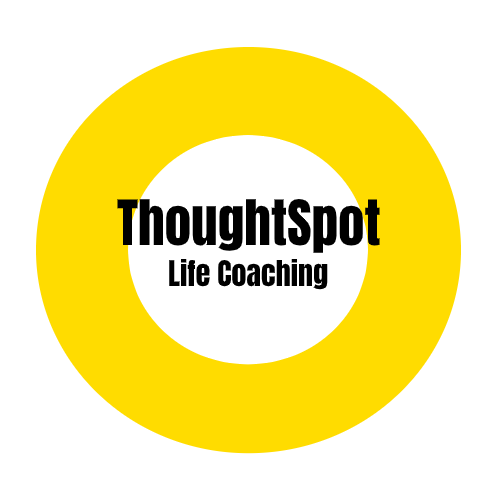Millennials, AI and Blockchain, have been introduced in our lives a while back, and as we are all aware, our work-scopes and spaces are undergoing massive changes. According to a study by TalentCulture, only 34% of the 2,700 executives surveyed think they are making progress in creating a workforce that will meet future business goals. Additionally, according to a study, only 5 percent of companies feel they have influential digital leaders in place.
As seen through the above statistics, making leaders future-ready has just acquired the first position on the to-do-list of organizations. Engagement, retainment, and development of leaders are crucial to the success of any organization, and the way to achieve this is Executive Coaching. Coaching has been present since quite a few decades but it is in the last decade, that coaches have gone from a rare resource to a common need.
.
Here are some findings from a study done by Harvard Business Review

https://hbr.org/resources/images/article_assets/hbr/0901/R0901H_A.gif
What do leaders need to be future ready?
A good leader should possess certain crucial future leadership skills like strategic thinking, empathy, influence, creative thinking, change adaptability, and cognitive abilities. In the words of John Quincy Adams, “If your action inspires others to dream more, learn more, do more, and behave more, you’re a leader.” An organization or a leader to be future ready; they need to execute these elements:
- Upskilling: Make sure to embed continuous learning in company culture to keep up with the new age technology and areas like social media. Re-skilling, the organization, will help your employees stay loyal to the organization and discover new skills which directly helps in organizational growth.
- Redesign work and align talent: With digitization in play, the nature of the work has changed massively. With these changing roles, there comes the need to assign the right candidate for the positions for the organization’s growth.
- Strengthen the talent pipeline and encourage innovation: Future leadership readiness requires long-term goals; succession planning. The planning should be incorporated with elements of coaching and mentoring, along with career pathing, productivity enhancement, and employee development. Newmarket exposure and cross-skilling will open new opportunities for the team, and innovation is generally a solution for it. The leadership programs should encourage people to explore by building a culture of trust and collaboration.
- Align talent processes: These elements are achievable only when talent processes are in coordination with the outlook of new leadership.
Why Executive Coaches?
An organization hires a coach to guide them through this transition period. The coaches tend to create a safe environment for the employee to get some clarity about themselves. Coaching is a collaborative journey where the coach enables the coachee to identify the best possible solutions by helping them maximize their professional and personal potential.
Coaches believe in the fact that “the more an individual is involved in identifying problems, in working out and applying solutions for them and in reviewing results, the more complete and the more long-lasting the learning is.” [Redshaw, 2000, p. 106]
Here is how an executive coach helps your organization improve:
- Goals: A coach helps give one clarity on what they want in the long-term for the company and help you stay focused on achieving it.
- Blind Spots: Getting an outside perspective can be beneficial to the firm to identify the things you have missed being to close to the company. Furthermore, they will be brutally honest about it to help you achieve your desired goals.
- Accountability: It is a coaches job to keep one on track and move forward to attain new levels to reach the ultimate business goal.
- Development Efforts: The coaches help you differentiate you between weakness that needs to be fixed and the one that can be left alone, help you invest time and effort in things that will have returns.
- Competitive Advantage: Given that the coach is experienced, you will have the upper hand as he will guide you a faster route from point a to b.
- Leadership Skills: After working with a coach, one starts to adopt the same techniques that help one lead their team.
- Engagement: According to a Gallup study, only 13% of employees are engaged at work. Also, according to a survey by HCI and ICF, 65% of employees of a company with an influential coaching culture found themselves highly engaged with, which results in increased engagement and benefit the organization.
Criteria for hiring the right executive coach
A coach is essential for organizations, but it is equally important to evaluate your choice and hire the right person for your firm. Here are some criteria to consider while you’re hiring a coach according to experts:
- To start with, the qualification of the coach matter. The person needs to be certified by a reputed body like the International Coaching Federation (ICF).
- Try and see if he or she has a clear understanding of organizational dynamics, business principles, and a clear yet flexible approach that attains results.
- A good coach has to be skilled in listening, identifying underlying patterns and behavior, asking probing questions. They should have the ability to model key leadership behaviors; Emotional intelligence, establishing trust and building relationships.
- One should always refer to the testimonials and referrals to past clients before hiring them.
Executive coaching is a way to engage people in a way that is most suitable for them, which enables them to preserve their individuality. Leaders start living more consciously and make informed decisions. Coaching is not just about self-awareness, but a form of active learning that helps leaders readjust to new responsibilities, overcome destructive behaviors, enhance teamwork, align individuals to collective goals, and the list goes on. If you don’t think coaching is booming, here are some reports. In the last 10 years, membership of the International Coach Federation (ICF) has more than tripled. Estimates put the number of professional coach practitioners worldwide at more than 50,000 and growing. According to the ICF’s 2016 Global Coaching Study, the annual revenue from coaching is estimated at $2.35 billion.







